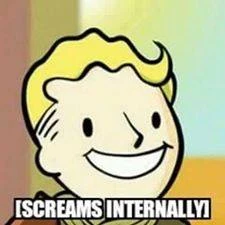One of the great things about Twitter is that you can find like-minded professionals who have wisdom and wit to share. I follow a chap, Doug Robertson, who wrote an article last September on his blog about having a student teacher and how he does things differently in his class. He teaches fifth grade, which is quite a bit different than my tenth grade stomping grounds. Teenagers require a different type of training than a bunch of barely-double-digits children, so that's to be expected. But there was this part of his essay that stood out to me:
Why are so many classrooms basically the same? I mean, I see conversations about taking risks all the time. I see costumes and bulletin boards and book studies about being different. But I don't see a lot of different. One more time, to be perfectly clear, I'm not saying, "why aren't more of you taking the legs off your desks"? I'm saying, "Do you think your room is different?" And is it important to you for your room to be different?This came up in a department meeting lately, and I fumbled in trying to get at the grist of my question with my coworkers. Nevertheless, I want to explore the concept of what makes our classes different. See, we have students take tours of the school--usually timid almost-seventh graders or nervous almost-ninth or -tenth graders--and the thing that was recently brought to my attention is simple: There are no questions about what we do in the individual classes. You walk into a geography class, and all the desks are facing the same way, and there are (surprise!) maps on the wall. Walk into the German/Chinese class? Same story. The only question marks are, when you walk into my class, why there are posters of Spider-Man, dinosaurs, and Shakespeare in almost equal measure. But the desks are all facing the same way, with a clear understanding of what the students and teacher would do.
Considering what and how I teach, I think that makes sense. But I'm not like Doug: He points out that it's silly when teachers say things like, "I don't know why they are giving me a student teacher, I'm not doing anything special." He feels like he's a good teacher, and that works. I have no reason to doubt him, since I've never seen him teach. I only really see me teach; I'm the only one that I continuously observe. And unlike Doug, I am not at all certain I know what good teaching is--or, rather, that I can do whatever "good teaching" is.
It's likely part of my upbringing or my own, self-diagnosed mental illnesses, but I do not have a lot of confidence in what I do. In, like, any aspect of my life. I may appear confident, but I'm basically this picture all of the time.
 |
| Except my hair is brown. Source. |
That's why Doug's comments made me think. Obviously, I don't need to be like The Weird Teacher--I need to be like me. But I don't know what the barometer works for how effective a class is. Do we look at short term successes? Are those reflected in grades (which are gross)? Long term successes? And what do those look like--financial, emotional, familial? And how can you trace past positive experiences toward present satisfaction? If I give a student a tool, it's up to her to refine her skill with it. So should I view myself as a "good teacher" because she improved her abilities with what I gave her? And if, through some alchemy, I could get an understanding of how I helped her, why would that indicate good teaching in me? Isn't actually good learning on her part?
If I could guarantee that, through some change of my pedagogy, my students would all feel equipped and empowered and more capable, I would definitely do it. I would give them a different class. But in lieu of that information...I don't know what else I should do.
So I guess I'll keep doing what I'm doing and hope for their best while giving them mine.